INTERVIEW
Revolutionising insurance through blockchain technology
In conversation with Bob Crozier, Chief Architect, Allianz Technology
Published: 22 September 2022
By Gian Hayer
Digital Content Producer
While widespread use of blockchain in the insurance industry is yet to be seen, there are certain companies that are already starting to reap its many benefits. As blockchain technology matures, it has the potential to revolutionise the industry, as more products arise that are both driving efficiency-related cost savings and opening new markets to support and deliver benefits to customers.
Allianz is taking advantage of blockchain on a large scale, having launched their International Claims Solution in 23 European countries in May 2021, transforming the way that cross-border motor claims are dealt with. Now that they are nearing 2 million transactions processed, I’ve asked Allianz Technology’s Chief Architect, Bob Crozier to talk me through the impact of their new blockchain-based solution, along with his thoughts on the role of blockchain in the insurance world, now and into the future. We look forward to hearing more from Bob at Insurance Innovators Summit, 16-17 November.
Where are the greatest advances being seen in blockchain within the insurance industry, and what can be done to facilitate its growth?
B.C. Blockchain is still ‘early’ in the Insurance world. Our Allianz International Claims Solution is one of the first (and biggest) production deployments of blockchain in the insurance world that is supporting significant volumes of business. As the technology matures more real products are driving both efficiency related cost savings and opening new markets to support and deliver benefits for our customers.
At present, the greatest advances are being seen in deeper process automation, reductions in duplicated efforts and creating undisputed audit trails are where the most value is being provided by switching to Blockchain-based applications. To facilitate growth in the use of the technology, it is incumbent upon those of us who see success to say so and show where real value is being delivered. This means enabling a mindset shift of senior business leaders who can see the problem patterns that are best addressed by the application of blockchain technology reflected in their own businesses. We need to see blockchain technology not as an end in and of itself but rather an enabler to solve business problems.
“We need to see blockchain technology not as an end in and of itself but rather an enabler to solve business problems.”
Where do you see blockchain being applied in the context of insurance?
Blockchain is already being applied in almost every part of the value chain. In the short-term I see use cases in onboarding of new applications shortening the deal cycle. Claims Fraud detection is another area in which the ability to check for duplicate claims notifications will yield more benefits. Blockchain also enables highly secure and verified data exchange between multiple counter parties so use cases where insurers need to share or exchange data have enormous value.
In the longer term, I would see the entire end-to-end insurance value chain being impacted by blockchain where isolated blockchain products would ultimately connect to each other from the policy sale all the way to claims settlement and accounting.
Allianz Technology launched its International Claims Process in collaboration with your colleagues in 23 European countries last year. How does the process work?
Our blockchain-based solution works as such: a person with a motor insurance policy from Allianz Germany goes on holiday to Italy and unfortunately has an accident while they are there. This creates a claims event which Allianz Italy will take care of (repair costs, police reports, health claims and the administration of all this activity). The customer and any other third party have their claim dealt with quickly and efficiently. At Allianz, we must settle the claim internally between Germany and Italy, keeping in mind that the insurance policy on which the claim is made is from Germany. Italy submits all the materials for the claim, and Germany will verify coverage; together they agree the amount that Germany must reimburse Italy, and then the cross-border motor claim settlement is made.

Built on modern microservices architecture, the product has three smart contracts at its core, making use of blockchain where it can really add significant value. These deal with:
- Audit – every claim decision is recorded in an immutable ledger with oversight from the Group holding function as observer.
- Validation and verification of inter-company tasks, and
- Reconciliation by codifying the inter-company billing and fees settlement.
This is the minimum that the customers of Allianz Technology expect. We expect to further increase automation with further integrations to other core insurance and payment ledger platforms, which will further reduce duplication of efforts. Longer term, we will look to explore integrating further external parties in the claims value chain for even further process automation and reduction in administration costs.
What were the challenges you faced in bringing the International Claims Process to launch?
Bringing a product that uses emerging technology to life and into production is difficult.The first challenge to be overcome is a mindset shift. We must convince business leaders so that they can relate the problem patterns that blockchain technology addresses to their business processes and achieve that buy in to get started on building the product.
As the solution we tackled was cross-border in nature, we had to make sure that our network architecture enabled a GDPR compliant solution which we addressed with reference to blockchain-savvy legal and compliance teams. Building this in from the beginning was hugely important, and we achieved this synergy only through a massive and successful collaboration between Allianz Technology, Allianz SE and the 23 different Allianz Companies engaged in the design, build and rollout of the product to ensure the materialization of the predicted business benefits.
Interestingly, some challenges that were envisaged did not materialize. One of the things we are most proud of is that we were able to bring this product to life without having to change any rules or circumvent any of our internal policies; our product is fully in-line with our Group Standards and Practices. We proved that innovation and execution are achievable in what is generally considered a conservative industry and demonstrated that Allianz and Allianz Technology are at the leading edge of innovation within our industry, and indeed in the wider financial services world.

What advice would you offer other insurers who are considering implementing blockchain in their claims processes?
Get started with mindset shift, talk to your claims experts, get buy in from multiple forward thinking senior executives who share your vision and understand how the blockchain can shape their business. From a technical standpoint, ensure your tech team is across the details and understand how to deliver new product within your organization and don’t try to avoid approval steps. Blockchain and DLT (distributed ledger technology) must be able to stand on its own two feet and prove that it is the better technical choice to solve a given customer pain point. It’s time to take it out of your innovation lab and plant it squarely in your IT organization and see it applied to the right problems for real business value.
Follow us on:

Bob Crozier
Chief Architect, Head of Enterprise Architecture & Global Head of Blockchain at Allianz Technology
Bob is Chief Architect and Head of Enterprise Architecture at Allianz Technology linking company strategy to the design of business and IT systems enabling close alignment of emerging technologies with the existing business. This includes initiatives and applications that affect all parts of the Allianz value chain.
Bob is also Head of Global Blockchain with responsibility for delivering products with Blockchain and Distributed Ledger Technologies as the foundation for new digital business models for Allianz. He has a deep experience specifically with Blockchain in financial services. Bob is a Director on the Board of B3i Services AG as well as the Corda Network Foundation.
Want to hear more from Bob? Join him at Insurance Innovators Summit being held at QEII Centre, London on 16-17 November 2022, where he will delivering his presentation on ‘DLT in action | Allianz Blockchain claims management’.
Stay current with Insurance Innovators
Subscribe to our newsletter to receive news, insights and special offers.
